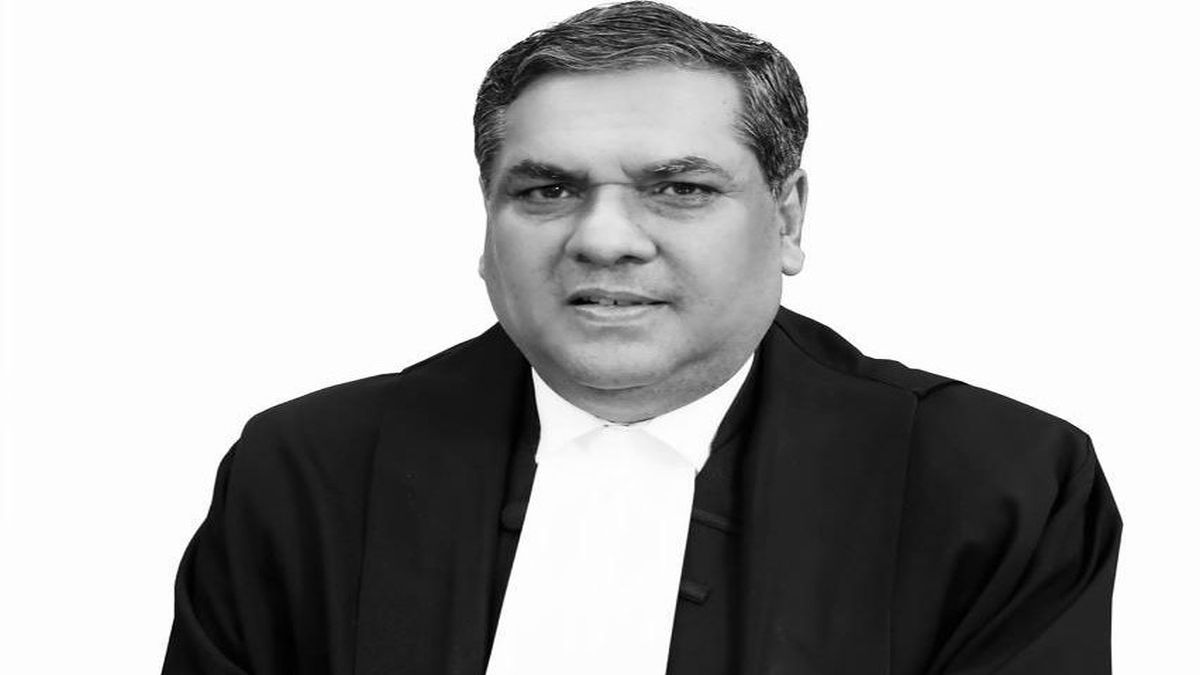) |
|
The Indian legal landscape is poised for a change as Chief Justice of India (CJI) DY Chandrachud prepares to retire on November 10th, 2023. In accordance with established norms, CJI Chandrachud has submitted his recommendation for his successor to the Union Law Ministry. His choice is Justice Sanjiv Khanna, the second most senior judge on the Supreme Court. If the Union Government accepts this recommendation, Justice Khanna will be the 51st Chief Justice of India, with a six-month term until May 13, 2025.
Justice Sanjiv Khanna, born on May 14, 1960, hails from a lineage of legal luminaries. He is related to the renowned judge Hans Raj Khanna, who famously resigned from the Supreme Court during the period of Emergency. Justice Khanna's own legal journey began after graduating with a law degree from Delhi University in 1983. He commenced his career as a lawyer at the Tis Hazari complex in Delhi, later moving to the Delhi High Court and various tribunals. His expertise as a lawyer encompassed a wide range of legal fields, including constitutional law, direct taxes, arbitration, commercial matters, company law, land laws, environmental and pollution laws, and medical negligence.
Justice Khanna's proficiency in taxation law led to a significant tenure as the Senior Standing Counsel for the Income Tax Department. He also served as an Additional Public Prosecutor and an amicus curie in criminal cases at the Delhi High Court. His dedication and expertise were recognized in 2005 when he was elevated as an additional judge of the Delhi High Court. A year later, in 2006, he was appointed as a permanent judge. During his time at the Delhi High Court, Justice Khanna also held key positions as chairman/judge-in-charge of the Delhi Judicial Academy, the Delhi International Arbitration Centre, and the District Court Mediation Centres.
In 2019, Justice Khanna was elevated to the Supreme Court, a move that raised some eyebrows due to his ascension to the apex court before assuming the role of chief justice of any high court. During his tenure as a Supreme Court judge, Justice Khanna served as the chairman of the Supreme Court Legal Service Committee from June 2023 to December 2023. He also currently holds the positions of Executive Chairman of the National Legal Services Authority and a member of the Governing Counsel of the National Judicial Academy in Bhopal.
Justice Khanna's career is marked by significant contributions to landmark legal decisions. He was a member of the five-judge Constitution Bench, led by CJI Ranjan Gogoi, that upheld the Delhi High Court's landmark 2010 judgment bringing the Chief Justice of India's office under the Right to Information. He also played a key role in the bench that ruled in favor of the government concerning the abrogation of Article 370. In a notable case, he ruled that the Supreme Court possesses the discretion to dissolve marriages by passing a decree of divorce by mutual consent on the grounds of ‘irretrievable breakdown’, utilizing powers under Article 142.
Justice Khanna has been at the forefront of some crucial legal cases, including his participation in the ruling that declared the Electoral Bond Scheme unconstitutional. He argued that the scheme violated the right to information due to the asymmetrical knowledge of donor identities by bank officers, emphasizing the importance of transparency in electoral funding. Earlier this year, he dismissed a plea for cross-verification of votes cast in EVMs with VVPAT, reaffirming the sanctity of EVMs and the trust placed in the Election Commission of India (ECI).
Justice Khanna's legal career has involved notable decisions in high-profile cases. He granted interim bail to former Delhi Chief Minister Arvind Kejriwal to campaign during the Lok Sabha elections, while a bench led by him refused bail to former Delhi Deputy CM Manish Sisodia in October 2022. He also denied bail to BRS leader and Telangana MLC K Kavitha in the liquor policy case in March 2023. As Justice Khanna prepares to ascend to the highest judicial office in the country, his past decisions and extensive legal experience suggest a tenure marked by significant rulings and crucial contributions to the Indian legal system.
Source: CJI Chandrachud proposes Justice Sanjiv Khanna as successor. Who is he?
